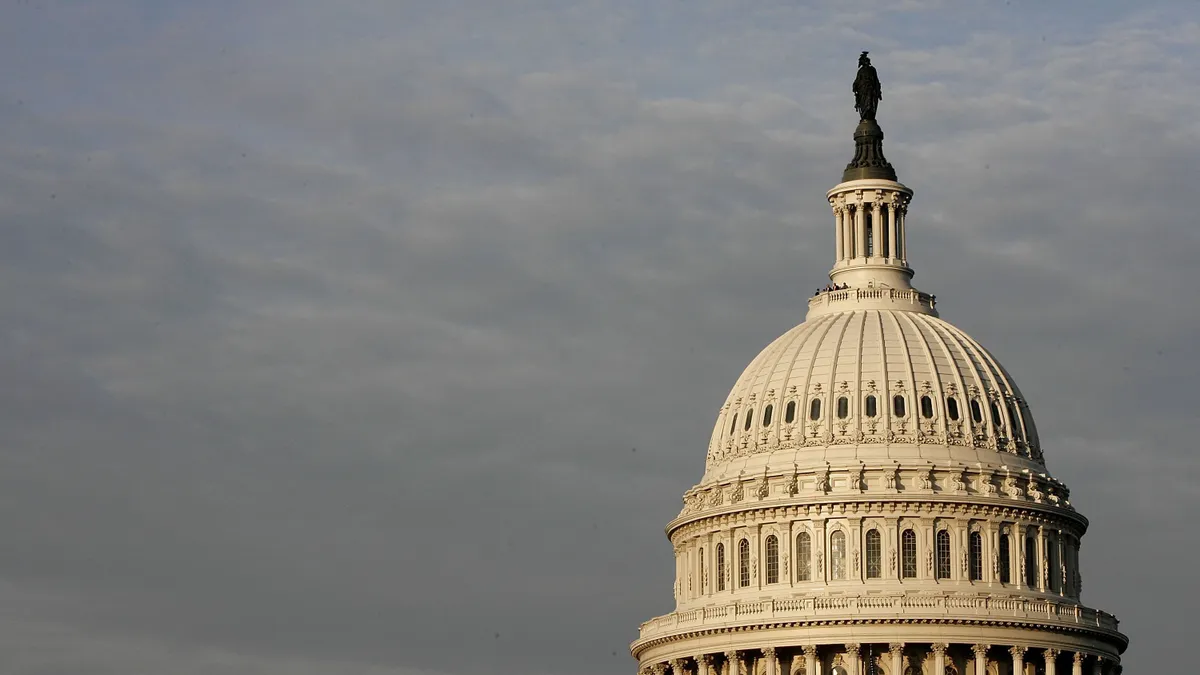Dive Brief:
- U.S. Education Secretary Miguel Cardona promoted strong school-based mental health supports and expansion of community schools during a Thursday hearing of the House Education and Labor Committee on Capitol Hill. The hearing's intent was to discuss the U.S. Department of Education's priorities and proposed FY 2023 budget, but lawmakers raised a variety of issues, including support for schools, in the wake of this week's school shooting in Uvalde, Texas.
- Community schools that have student and family resources — such as education, health and housing services — in addition to increased funds for Title I, can be long-term solutions for reengaging students, partnering with parents and helping high poverty areas, Cardona said.
- Mental health and trauma services in schools remain crucial programs as students recover from the pandemic, Cardona said. "Foundationally, our schools have to be transformative in their changes to make sure mental health access is there for all students."
Dive Insight:
The Ed Department's budget requests $468 million for expanding the full-service community schools program. The plan would add 800 community schools across the nation to provide comprehensive social-emotional, academic and health supports for 2.5 million students and their families, said Roberto Rodríguez, assistant education secretary for planning, evaluation and policy development, during a FY23 budget briefing in March.
This year's federal budget allocates $75 million for community schools.
Another significant request for FY23 is $1 billion for a new school-based health professionals program to add counselors, nurses, school psychologists, social workers and other health professionals in schools. The plan includes building a pipeline for professionals in these fields, with a focus on schools supporting underserved students.
Cardona said the additional money for mental health can build on investments that began with American Rescue Plan funding. "For us at the Department of Education, we're really looking at mental health access as a pillar of how we reimagine schools," he said.
Another $350 million would be dedicated to identifying and scaling models that improve recruitment and retention of educators, including efforts that would improve resources and support for teachers.
The committee started the nearly four-hour hearing with a moment of silence for the Uvalde shooting victims, their families and the entire community of Robb Elementary School. Intertwined with the budget discussion, many lawmakers referenced the deaths of 19 children and two teachers.
"I call on each of us as members of the Committee on Education and Labor to do everything we can to protect schools and communities from gun violence and to ensure that this most recent tragedy will be the last," said Committee Chair Bobby Scott, a Democrat from Virginia, said in his opening remarks.
Rep. Lucy McBath, a Democrat from Georgia, lost her son in 2012 to gun violence. "There's a pain that never goes away, and while it takes away your baby, your children, it leaves you with this fiery and everlasting resolve to ensure that this happens to no other mother, to no other family, to no other community," she said.
According to Rep. Tim Walberg, a Republican from Michigan, "It has to be all hands on deck, in our homes, in our schools, in our churches, and we want to be working together, and we did that for most of the history of this country."
Ranking Member Rep. Virginia Foxx, a Republican from North Carolina, said conversations about how to handle school safety and mental health must be done thoughtfully. "Federal changes should not be made in haste," Foxx said.
She added, "Mr. Chairman, as I've said before, we stand ready to work with you to examine the federal problems under our jurisdiction to help families, schools, and communities prevent these tragedies from occurring."
The full Education Department proposed budget seeks $88.3 billion in discretionary spending, a 15.6% increase from FY 2022. Title I would receive $36.5 billion, and the Individuals with Disabilities Education Act's programs for students with disabilities in pre-K-12 would get $16.3 billion.
Lawmakers voiced support for academic recovery initiatives, career and technical education programs, quality charter schools and more during Thursday's hearing. The budget for FY 23, which begins Oct. 1, requires approval from Congress












